Publications
Articles, publications, books, tools and multimedia features from the U.S. Institute of Peace provide the latest news, analysis, research findings, practitioner guides and reports, all related to the conflict zones and issues that are at the center of the Institute’s work to prevent and reduce violent conflict.
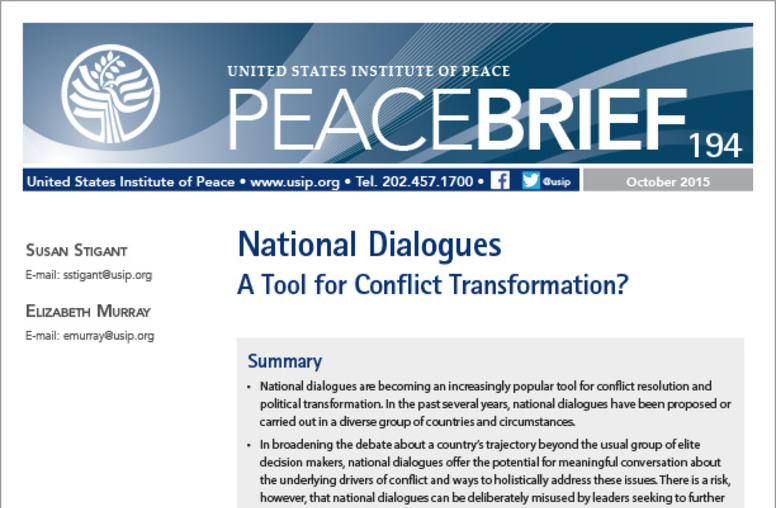
National Dialogues: A Tool for Conflict Transformation?
National dialogue is an increasingly popular tool for conflict resolution and political transformation. It can broaden debate regarding a country’s trajectory beyond the usual elite decision makers; however, it can also be misused and manipulated by leaders to consolidate their power. This brief includes principles to strengthen national dialogue processes and considerations for international actors seeking to support these processes.
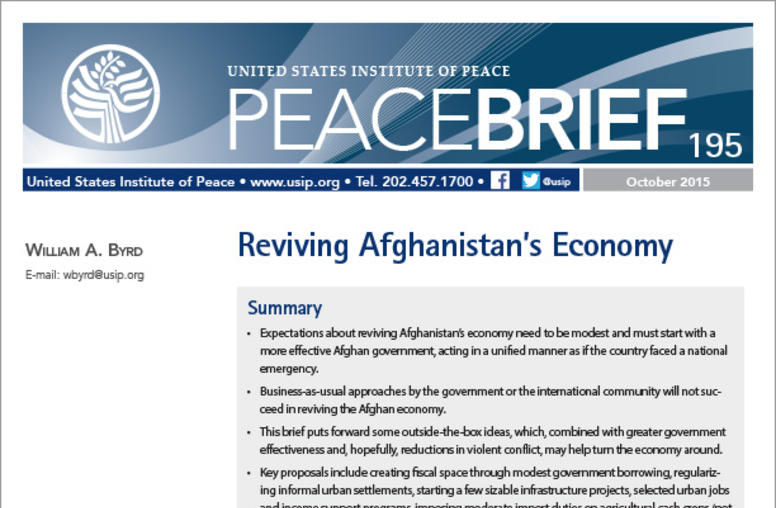
Reviving Afghanistan's Economy
Some say reviving the Afghan economy in a time of intensifying violent conflict and declining external financial inflows will be impossible. Expectations need to be kept modest, and measures must go beyond conventional economic approaches in order to be effective. This brief puts forward some outside-the-box ideas, which, combined with greater government effectiveness and, hopefully, reductions in violent conflict, may help turn the economy around.
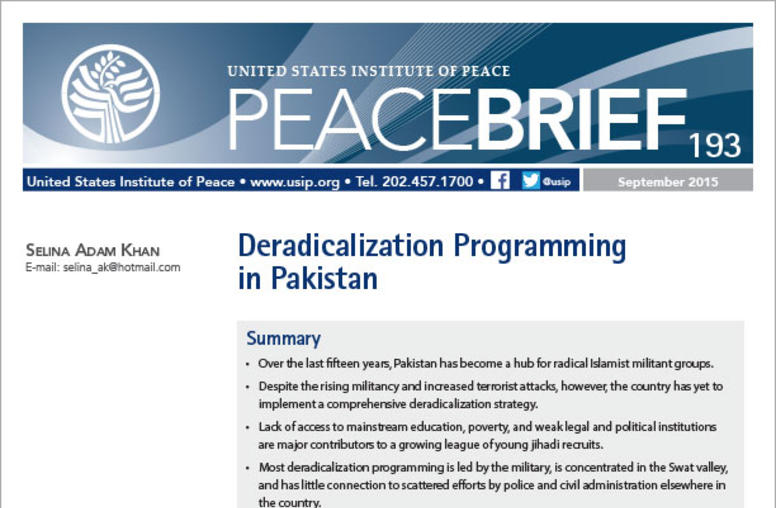
Deradicalization Programming in Pakistan
The December 2014 terrorist attack in Peshawar that killed 132 schoolchildren forced Pakistan to acknowledge the extent of its ongoing problem with radical Islamist militancy. Islamabad, however, has yet to implement a comprehensive deradicalization strategy. In January 2015, it took a formal step in this direction with its twenty-point National Action Plan in response to the Peshawar attack—a step, but only a first step. If deradicalization is to meet with any success in Pakistan, the nation...
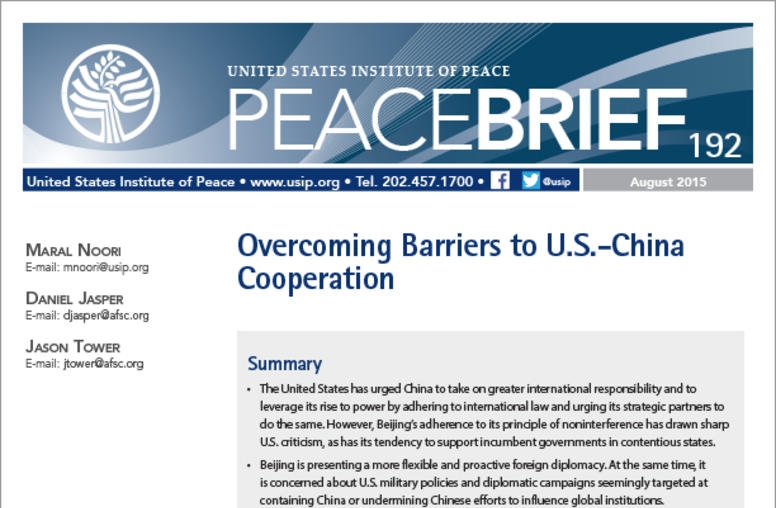
Overcoming Barriers to U.S.-China Cooperation
In 2011, U.S. president Barack Obama announced plans to "pivot" toward Asia. In 2012, Chinese president Xi Jinping expressed his hope for "a new type of relationship" with the United States. A lack of strategic trust between the two countries, however, prevents critically needed productive cooperation. This Peace Brief addresses the misunderstandings behind this mistrust and a possible way to move beyond them.
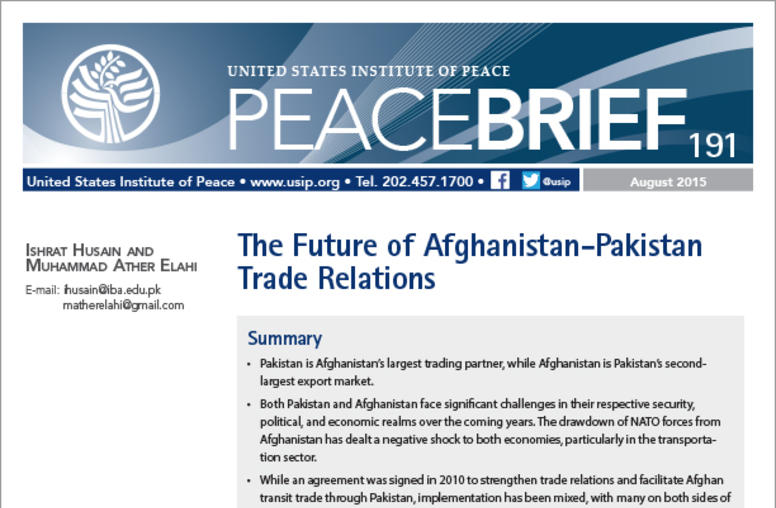
The Future of Afghanistan-Pakistan Trade Relations
Pakistan and Afghanistan are among each other’s largest trading partners. Though an agreement was signed in 2010 to strengthen trade relations and facilitate Afghan transit trade through Pakistan, implementation has been mixed, with many on both sides of the border complaining of continued barriers to exchange. Both nations need to improve trade facilitation through streamlined payments settlement and improved insurance mechanisms, the use of bonded carriers, visa issuance, trade financing, t...
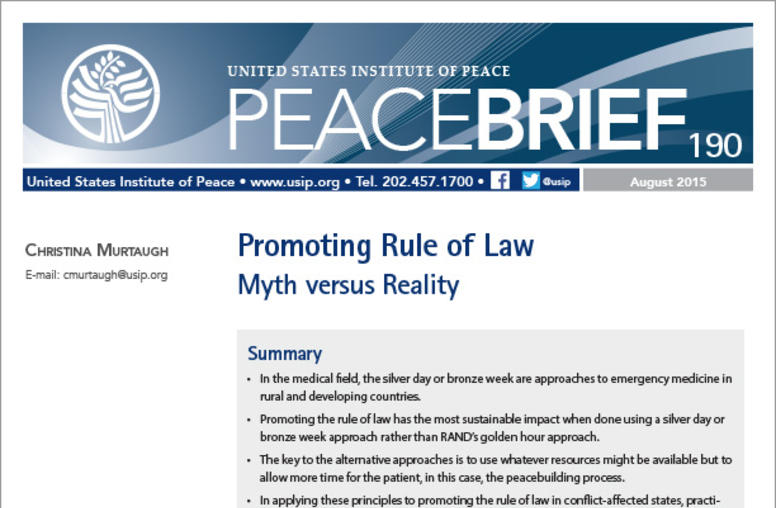
Promoting Rule of Law: Myth Versus Reality
Rule of law has long been a key international concern, especially for conflict-affected countries, and promoting it is a critical challenge to the international community. This Peace Brief focuses on the misconceptions of what is called the golden hour approach to offer more practicable alternatives. The issue is focus—whether to find a solution among Western paradigms or to empower people, support sustainable change, and provide enough time for the people to act and the process to unfold on ...
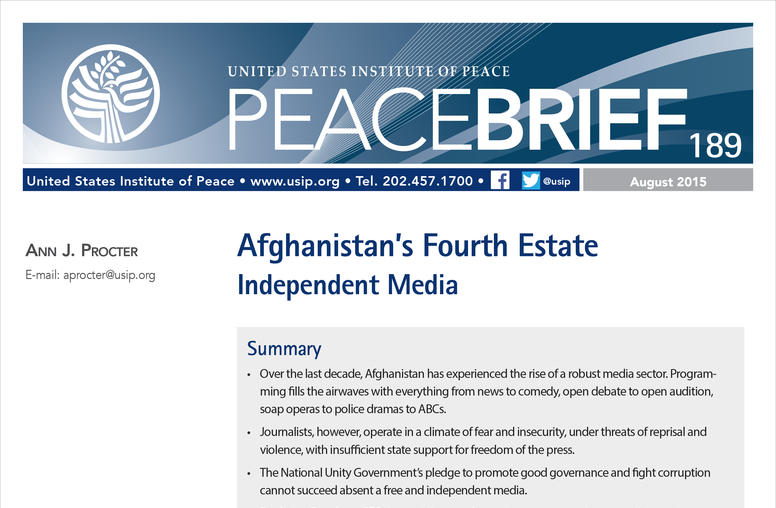
Afghanistan’s Fourth Estate: Independent Media
Afghanistan’s media have evolved at warp speed since the fall of the Taliban in 2001, yet being a journalist remains an extremely dangerous occupation, as many have been killed and still more threatened with violence if they persist in their work. The growth of Afghanistan’s democracy depends on a functioning media. This report examines the situation and offers paths forward to making Afghanistan safer for journalism.
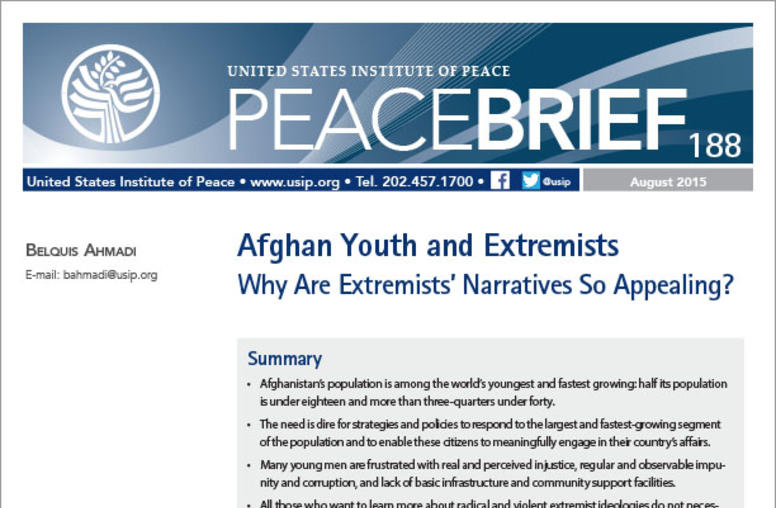
Afghan Youth and Extremists
Four decades of political instability, violent conflict, and socioeconomic crisis has had a devastating impact on Afghanistan and its citizens. As this Peace Brief explains, understanding the process of radicalization and the drivers of violent extremism is vital to designing effective counterstrategies.
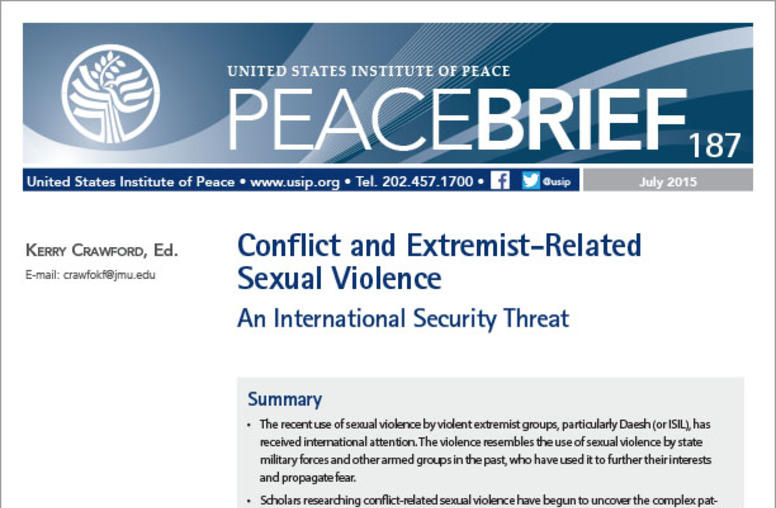
Conflict and Extremist-Related Sexual Violence
As extremist groups in the Middle East and North Africa perpetrate sexual violence against women as part of their campaigns to further their interests and propagate fear, scholars are reaching a deeper understanding of the ways in which sexual violence, before, during, and after conflict, arises from a complex pattern of political, military, social, and economic factors. International actors can draw from this work to craft responses that better assist survivors and hold perpetrators accounta...
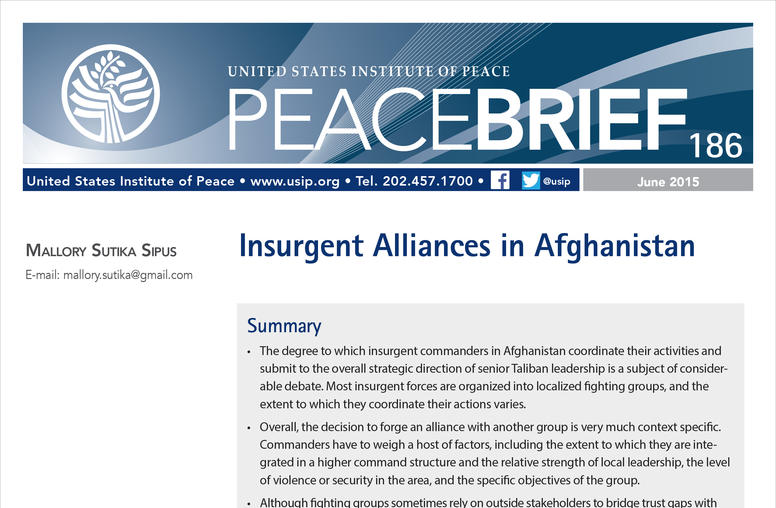
Insurgent Alliances in Afghanistan
One of the contributing factors to Afghanistan’s civil conflict has been the fluidity within military alliances at the sub-national level. This brief examines the circumstances of military alliances between insurgent commanders—what factors play into an alliance and how they are maintained, with assessments resulting from research from the Centre for Conflict and Peace Studies and supported by USIP.